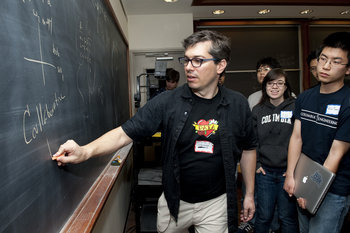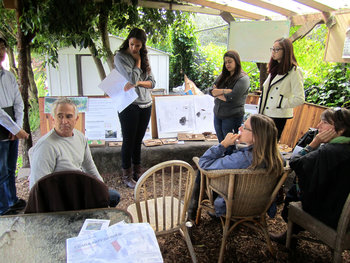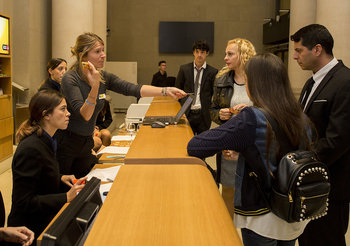
Time is Irreversible
The arrow of time means that time is irreversible such that time travel is not possible and the future can not influence the past.Causality
The arrow of time is often used to establish cause and effect as it is impossible for a future event to be a cause of a historical event. This isn't always clear cut. For example, the old dilemma - what came first the chicken or the egg?Entropy
Entropy is the amount of disorder in a system. According to the Second Law of Thermodynamics, entropy moves in a one-way direction with the arrow of time. In other words, disorder or randomness increases with time. This can explain the observation that all things, including the universe itself, age and become less orderly over time. Technically, this only applies to an isolated system. An outside force could use its energy to restore order to something. For example, an old building can be continually repaired and maintained such that it improves with time.Entropy is Irreversible
The entropy of an isolated system is irreversible. For example, a rocket launches and burns fuel such that particles of exhaust scatter in a large number of directions. This process can not be reversed by the rocket. The principle that entropy is irreversible is validated by everyday observations such as the experience that aging is irreversible despite extreme human efforts to "cure" aging.Consciousness
The arrow of time is perceived intuitively by the human mind such that people accept it as self-evident. For example, if you play a video backwards, people will immediately recognize that the events in the video are going the wrong way. As a theory of physics, the arrow of time remains unproven.Complexity is Irreversible
As the universe moves from an ordered state to a random state, according to the laws of thermodynamics it becomes more complex. For example, the information required to record the state of the Universe at the moment of the Big Bang is much less than the information required to record its state now. This is useful as a rule of thumb that is applicable to life in general. For example, a society that becomes more complex by adopting new technologies is unlikely to reverse back to a simpler state.Notes
The other dimensions of the Universe, namely the three dimensions of space, do not have a one-way direction like time.| Overview: Arrow Of Time | ||
Type | ||
Definition | The theory that time moves in a single direction from past to future. | |
Attributed To | Arthur Eddington | |
Related Concepts | ||
































